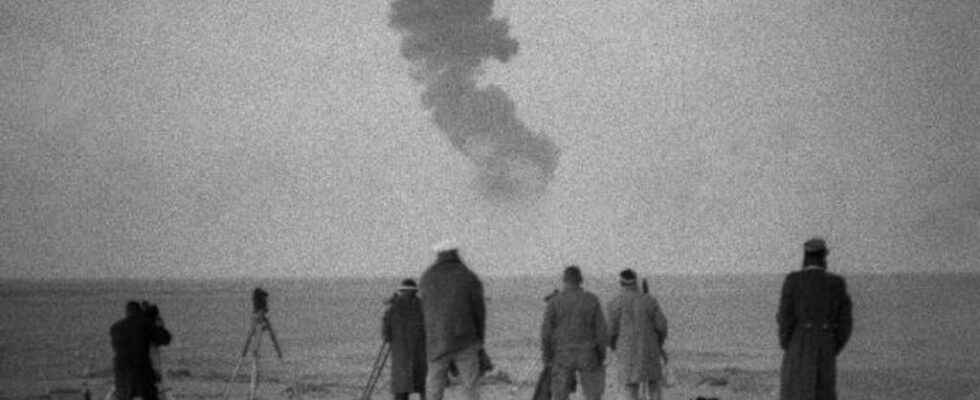60 years ago, on March 18, 1962, the Évian Accords were signed in eastern France, supposed to put an end to more than seven years of Franco-Algerian conflict. The text specifies the process of self-determination of the Algerian people. It frames the status of European populations, and provides for the maintenance of France for a few years in the Sahara. Certain clauses on this subject have long remained secret.
With the status of Europeans in the future independent Algeria, which will not be respected after the signing of the Evian agreements, the fate of the Sahara is the most sensitive chapter of the negotiations at the time.
France then ended up recognizing that the immense desert was Algerian, but it wants to maintain its presence there: it discovered oil there in 1956 and proceeded, in Reggane, to its first nuclear test in February 1960. Achieving the development of the atomic bomb became a major strategic objective for General de Gaulle.
► Read also: Algeria: under the sand, French nuclear waste
In Evian, the French negotiators obtain that France continues to exploit the hydrocarbons of the Sahara with Algeria. The agreement will hold until the nationalization of the sector in 1971. The French army is also authorized to continue its nuclear tests: 57 in all in the Algerian sands until 1966.
In the late 1990s, The new observer will also reveal the existence of the French chemical weapons experimentation base of B2 Namous, in the northern Sahara. Object itself of a secret clause of the Evian agreements, which will be renewed in 1967 and 1972, before the final departure of the French army from this immense chemical polygon in 1978.
► Read also: Algerian War: the tumultuous history of the Evian Accords
